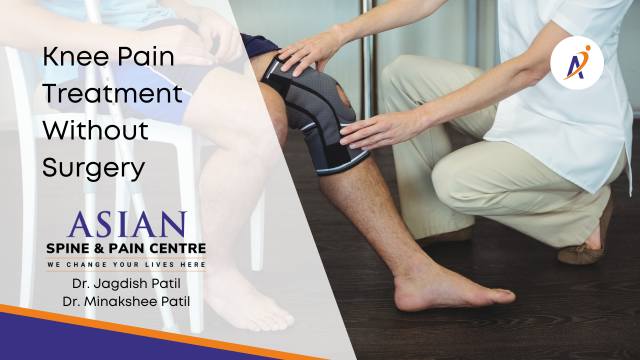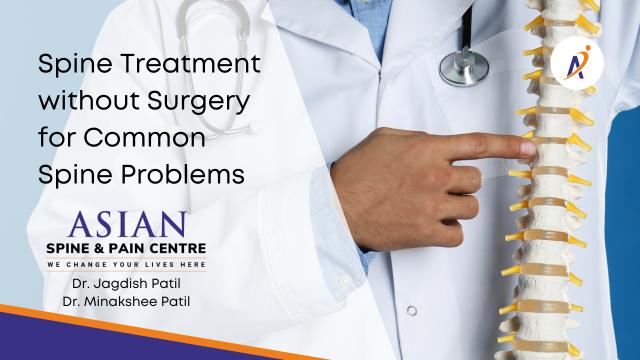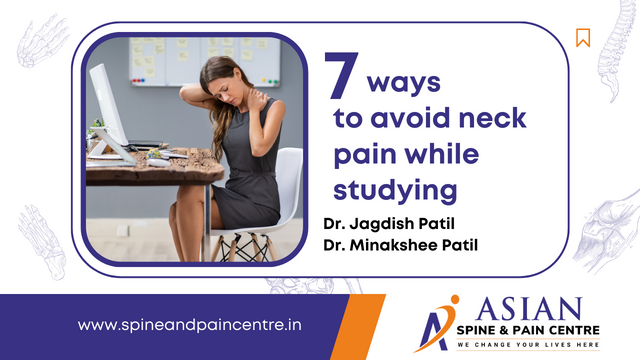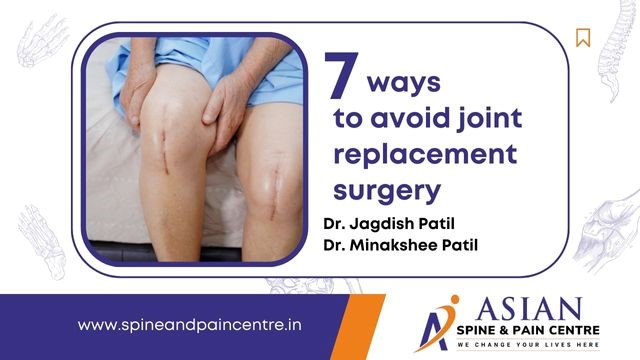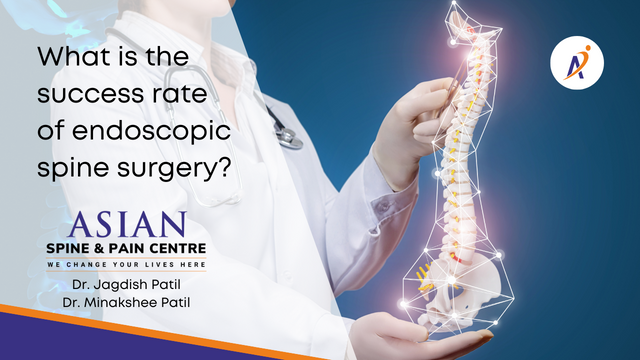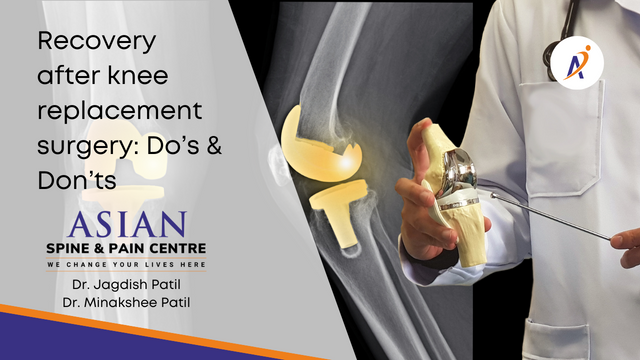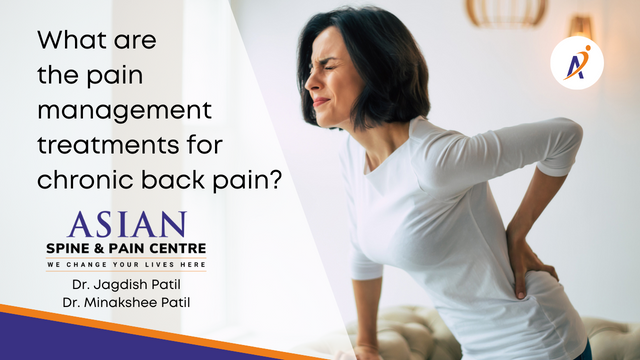Blog
Dr. Jagdish Patill & Dr. Minakshee Patill started Asian Spine & Pain Centre with the aim to provide comprehensive & compassionate care for Spine, Joints and Pain treatment. In our blog we will explain orthopedic problems of spine, joints, pain management & treatment options.
Dr. Jagdish Patil & Dr. Minakshee Patil provides spine treatment without Surgery for common spine problems like spinal stenosis, herniated disc, sciatica, arthritis in Pune.
Dr. Jagdish Patil & Dr. Minakshee Patil provides spine treatment without Surgery for common spine problems like spinal stenosis, herniated disc, sciatica, arthritis in Pune.
Follow these 7 simple steps suggested by best pain management expert, Dr. Jagdish Patil, to avoid neck pain while studying long hours.
More than 90% patients with chronic joint pain of knee, hip or any other joint can avoid joint replacement surgery.
You might be a candidate for endoscopic spine surgery if you have a spinal ailment that has left you with pain, numbness, and other neurological issues.
Knee replacement surgery, also known as arthroplasty, involves using plastic or metal components to replace damaged sections of the knee that cause pain and discomfort.
Pain, particularly persistent or chronic back pain, was once a problem that many patients commonly had to "live" with.
Asian
Spine And Pain Centre
Asian Spine And Pain Centre
We change your lives here!
Dr. Jagdish Patill
M.B.B.S., M.S.(Orth), FIIPM, FIMISS
Endoscopic Spine & Joint Replacement Surgeon
Pain management Expert
Dr. Minakshee Patill
M.B.B.S., M.D., FPCI, FIPM
Interventional Pain Management Expert
Our facilities
Physiotherapy
Procedure Room
Pharmacy
X-ray & Imaging room
Emergency Care
Online Consultancy
“World Class Super Speciality Centre for Spine, Joints, Pain & Regenerative Therapies”
FAQs:
Yes, in more than 90% cases with chronic knee pain, a noninvasive or minimal invasive procedures can be used to avoid surgeries. But in 10% cases, surgery is unavoidable and can provide long term benefit. So trust our experts at Asian Spine & pain Centre to provide accurate diagnosis and pain management treatment for your chronic knee pain.
The goal / aim of sports medicine is to maintain, sustain, and at times to regain peak physical fitness i.e., adaptability to stress, physical and mental. Main functions of sports medicine are promotive, educative, formative, recreative, competitive, therapeutic and rehabilitative in nature. At Asian Spine & Pain Centre, we provide complete care of sport sports injuries for athletes in Pune.
Yes, in most cases, physiotherapy is must to regain complete joint mobility and muscular strength. It can be required after any orthopedic treatment either surgical or non-surgical. At Asian Spine & pain Centre, we have a tea, of experienced physiotherapists to provide complete care.
You might have serious back problem or emergency for which you need immediate orthopedic care. Following signs can help you to identify these serious situations – Sharp pain rather than a dull ache, Radiating pain, Sudden weakness in the legs, incontinence, numbness or needle like pain in the groin.
Yes. X-rays are often a good tool for determining if arthritis exists and, specifically, what type. Common types of arthritis include rheumatoid arthritis, psoriatic arthritis, and osteoarthritis. Early in the disease process, more sophisticated imaging may be necessary, especially MRI. We do provide X-ray imaging services at Asian Spine & Pain Centre.
If you’re experiencing chronic pain, a doctor may recommend that you have a nerve block, a temporary or permanent procedure that disrupts specific nerve activity. It can help diagnose or treat certain types of neuropathic pain, or pain caused by nerve dysfunction or damage. At Asian Spine & pain centre, we use nerve block therapy in selected cases of chronic pain.
As is often the case, recovery time can vary from person to person depending on the location of the surgery, the type of surgery required and the lifestyle of the patient. However, most patients are able to leave the hospital the same day and are typically able to return to their active lives within 4-6 weeks after surgery. However, some are back to normal in 1-2 weeks.
You shouldn’t downhill ski or play contact sports such as football and soccer. In general, avoid sports that require jerking, twisting, pulling, or running. You should be able to do lower-impact activities, such as hiking, gardening, swimming, playing tennis, and golfing.
Arthroscopy is a procedure for diagnosing and treating joint problems. A surgeon inserts a narrow tube attached to a fiber-optic video camera through a small incision — about the size of a buttonhole. The view inside your joint is transmitted to a high-definition video monitor. Arthroscopy allows the surgeon to see inside your joint without making a large incision. Surgeons can even repair some types of joint damage during arthroscopy, with pencil-thin surgical instruments inserted through additional small incisions.

